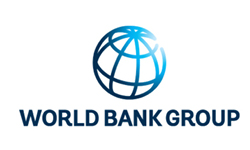1021 results found
Featured results



More results

The Reference Guide attempts to provide the most relevant examples, references and resources to help readers inform themselves on key PPP topics.


GI Hub Chief Executive Officer Chris Heathcote addressed the Business Council for International Understanding at a lunch hosted by Australia’s Ambassador to the US Joe Hockey in Washington DC recently.

Overall, the study has taken a broad approach to defining OA - going well beyond the minimalist notion of simply guaranteeing legal access to the grid for generators and wholesale buyers.



This publication consists of analysis on the relationship between GDP growth and traffic growth and converting emerging market growth into investment opportunities.


This publication draws on the Private Sector Participation (PSP) experience of four emerging economies Brazil, Peru, the Philippines, and Turkey based on in-depth case studies by Energy Sector Management Assistance Program (ESMAP).

BCG has identified a series of best practices that underlie successful PPPs.

International Enterprise (IE) Singapore is the government agency driving Singapore’s external economy.


This PPP checklist is an extension of the initial framework.



The Framework provides systematic structure for proactively disclosing information pertaining to PPP Projects.



This report addresses the critical question: how can the public and private sectors build successful partnerships?



A G20 report prepared by the Global Infrastructure Hub reviewing the extent to which Multilateral Development Banks (MDBs) create incentives within their organisations to crowd-in private finance to fund public infrastructure.


Asian Infrastructure Investment Bank President Mr Jin Liqun met Global Infrastructure Hub Chief Executive Officer Chris Heathcote at the GI Hub’s Sydney office on April 3, where both parties provided briefings on their key work. Discussion focused on the GI Hub’s report undertaken for the G20 on the role of Multilateral Development Banks in “crowding-in” private finance for public infrastructure, which was released earlier this year. The GI Hub has already been in discussions with the AIIB on the recommendations in the report.
This publication analyses the relationship between several infrastructure indicators and income inequality in urban areas of the People’s Republic of China.

This publication aims to estimate the direct and indirect effects of infrastructure on firm productivity using firm level data from the People’s Republic of China using multiple regression techniques.

This report reviews experiences with strategic infrastructure planning with a view to identifying international best practices.


Good governance of public infrastructure can thus yield substantial benefits for all. Based on a survey of 27 countries, this report provides an overview of current practices in infrastructure governance and presents practical tools to help policy makers better manage infrastructure.


Global infrastructure needs and Public-Private Partnerships were discussed when the Foreign Correspondents’ Association of Australia met the GI Hub today.
Global Infrastructure Hub Chief Executive Officer Chris Heathcote says quality public infrastructure can promote greater affluence and spark global growth. Mr Heathcote told a Public-Private Partnership Seminar in Athens that “infrastructure changes lives and changes economies”.
This book discusses in detail the issues and challenges associated with infrastructure connectivity in Asia.

This policy brief outlines promising ideas to attract instiutional investors to pay for infrastructure they have not convinced pension funds or affluent individuals to invest, especially in emerging economies with untested issuers, The “tax-kicker” bond being proposed here could solve this issue.









